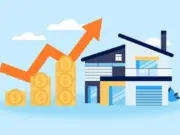Whether you’re tired or want to relax, a nap may seem like a good idea. If you want to boost your productivity and concentration, a power nap shortly after lunch is one of the best times. Naps taken in the afternoon are often called siestas. Studies show that napping in the afternoon can be beneficial for adults.
Taking a short sleep in the afternoon after lunch has been shown to improve cognition, productivity, mood, and alertness, as well as lower stress levels. On the other hand, napping too often or for an excessively long time may not be the best decision.
Benefits of Taking a Nap Post Lunch
The following are a few benefits of taking a nap post lunch:
- Helps with Learning and Understanding
REM sleep aids in recovery; hence the sleep stage is most associated with sleep’s restorative effects. As a result, you’ll have more room for creative thought, a deeper understanding of the material, and time to reflect on what you’ve learned throughout the day. Both longer naps (about an hour) and shorter ones (around 15 minutes) have similar effects.
- Boosts Productivity
Napping has been shown in scientific studies to improve psychological and cognitive functioning. The medical community agrees that an afternoon sleep is a great way to de-stress. Because of their beneficial effects on productivity and health, these naps are called power naps. Power naps have improved memory, cognitive function, and stress tolerance.
- Alleviates Stress
One of those advantages is stress alleviation, which may be achieved by napping in the afternoon. According to medical professionals, shift workers experience more fatigue because they are awake for longer periods. The stress level also climbs steadily. Chronic tiredness may become more severe if left untreated for a long period. Napping throughout the day may help reduce this kind of stress.
- Promotes Better Digestion
After lunch, taking a short nap is a good idea to assist your body in digesting the food. As you nap, your body is able to unwind so that all of its resources can go towards digesting the meal you consumed and absorbing the nutrients from it. Irritable Bowel Syndrome (IBS), acne, constipation, and dandruff are some of the problems that may be avoided.
- Promotes Healthful Eating Habits
The hunger hormone, ghrelin, and other neurotransmitters may be released in greater quantities when sleep is inadequate. Lack of sleep may cause a person to feel bloated or cause them to lose their appetite. Consequently, if you haven’t slept enough, having a nap will help you catch up while allowing your body to produce the right hormones for food.
- Aids in Healing and Growth
A lot of the damage that stress and environmental toxins inflict on your body is repaired while you nap, making sleep a crucial part of the recovery process. Napping during the daytime has been shown to increase the production of growth hormones responsible for muscle and tissue repair.
- Combats Concerns with Fatigue
The transition from morning to afternoon may be rough on your energy levels. This is because your biological clock dictates such a schedule. The specialist explains that the body temperature lowers somewhat every 12 hours. Although it occurs most often in the afternoon, it might leave its victims feeling exhausted. As a result, napping for 30 minutes may significantly improve alertness.
Conclusion
It is believed that taking brief naps may improve performance in various areas, including creativity, cognitive ability, memory, and general alertness. Napping after lunch has been shown to increase energy, improve immunological function, and improve mental clarity. As a bonus, napping has been shown to improve memory retention. Napping has been shown to improve one’s mood and sense of calm.







































